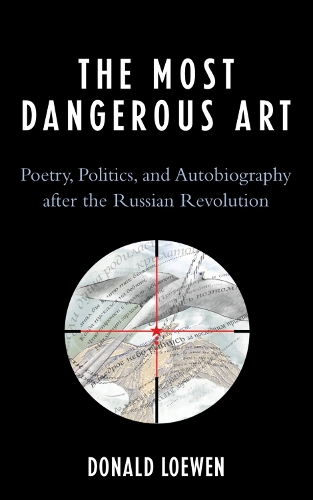
The Most Dangerous Art: Poetry, Politics, and Autobiography after the Russian Revolution
(Paperback)
Publishing Details
The Most Dangerous Art: Poetry, Politics, and Autobiography after the Russian Revolution
By (Author) Donald Loewen
Bloomsbury Publishing PLC
Lexington Books
14th June 2010
United States
Classifications
Tertiary Education
Non Fiction
891.7090042
Physical Properties
Paperback
226
Width 156mm, Height 235mm, Spine 17mm
379g
Description
At a time in Russia's history when poets could be (and sometimes were) killed for a poem, the autobiographies of three prominent poets, Osip Mandelstam, Marina Tsvetaeva, and Boris Pasternak, became a courageous defense of poetry. The Most Dangerous Art shows how these autobiographies trace an emotional trajectory that corresponds to the intensity of the social and state pressures that threatened Russian poets from the early 1920s to the late 1950s. During a period when literature became intensely political, and creative freedom became intensely risky, these autobiographies proclaim poetry's immortality and defend the poet's right to individual creativity against an increasingly threatening Soviet literary hierarchy. Donald Loewen provides detailed close readings of these biographies and juxtaposes these readings with historical context. The Most Dangerous Art is an illuminating contribution to the study of Russian literature. The volume is of special interest to researchers of 20th century Russian literature and autobiography.
Reviews
The Most Dangerous Art provides a subtle and far-reaching analysis of how poetic culture engaged with political reality in the Soviet era. By focusing on the autobiographical prose of Pasternak, Mandelstam, and Tsvetaeva and by showing how the 'orientation toward authenticity' (Lydia Ginzburg) in such writing places these works and their authors at the center of a force field involving the individual, the state, and the larger human community, Donald Loewen shows once again why 'the Poet' has been such an indispensable figure, indeed perhaps the indispensable figure, in the history of Russian self-consciousness. A beautifully written and powerfully argued study. -- David M. Bethea, University of Wisconsin-Madison
Recommended. -- . * CHOICE, May 2008 *
The greatest strength of the book is its unearthing and tracking of key literary debates between these writers and their opponents within the establishment, citing reviews and articles from newspapers and journals of the time. -- Belinda Cooke * The Russian Review, July 2009 *
The Most Dangerous Art is passionately argued and very smoothly written. * Slavic and East European Journal, Fall 2009 *
Loewen's approach in The Most Dangerous Art provides a synthesis of the familiar and the original: each chapter opens with a summary of earlier scholarship on the increasingly difficult situation for writers during the Soviet Union's first forty years, the proceeds to often passionate but informed analyses of the autobiographical works in question.... The Most Dangerous Art is well organized, meticulously researched and lucidly argued.... The volume makes a substantive contribution to the field and will be of particular use to emerging scholars, since it presents both the context and the impact, especialy for the poets' lives, in a single volume. -- Natasha Kolchevska, University of New Mexico * Canadian Slavonic Papers, June- September 2009 *
After introducing their broader context, Donald Loewen studies autobiographical prose by three of the greatest Russian poets: Mandelshtam, Pasternak, and Tsvetaeva. Loewen brings out the complexity of these documents of informed resistance. The Most Dangerous Art offers important insights for readers who care about the relationship of poetry and prose, literature and politics, creativity and oppression in an era when poetry was a matter of life and deathdangerous stuff indeed. -- Sibelan Forrester, Swarthmore College
Loewen puts together a formidable account in one volume, and the poets' defense of their vocation, as well as their own eventual neglect of the practical rules of self-preservation, are dutifully documented and retold.Loewen's efforts are credible and painstakinghe presents a clear and powerful introduction to one of the largest chapters in the literary history of the twentieth century and crystallizes a topic that remains a cornerstone in the landscape on conscience. * Slavic Review, July 2010 *
Author Bio
Donald Loewen is associate professor of Russian at Binghamton University (SUNY).
